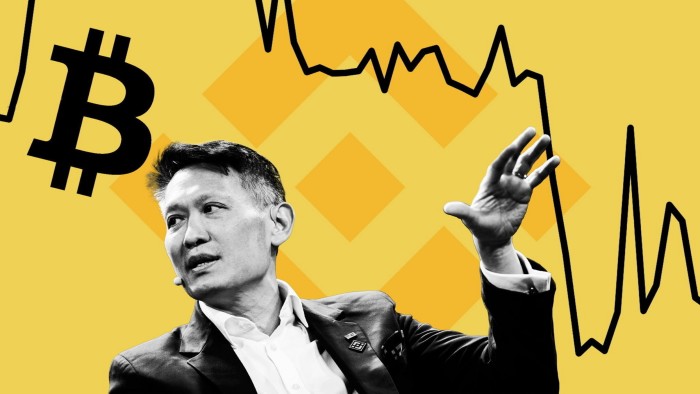Unlock the Editor’s Digest for free
Roula Khalaf, Editor of the FT, selects her favourite stories in this weekly newsletter.
Binance, the world’s biggest cryptocurrency exchange, which in 2023 pleaded guilty to US criminal charges, is advising several countries on creating their own digital assets regulations and establishing national strategic bitcoin reserves.
Richard Teng, the firm’s chief executive, told the Financial Times that the US’s more crypto-friendly approach under President Donald Trump, including plans to set up a regulatory framework for digital assets and a national stockpile, was spurring other countries into taking similar action.
“Compared to many other jurisdictions, [the US] are way ahead on that front,” Teng said.
The firm has “been approached by quite a lot” of countries to “[help] them with formulating their regulatory framework to govern crypto”, he added. He declined to name countries that the firm is working with.
The news comes less than 18 months after Binance pleaded guilty to criminal charges related to money laundering and breaching international financial sanctions, and agreed to pay more than $4.3bn in penalties. Co-founder and chief executive Changpeng Zhao stepped down and was replaced by Teng. Zhao later served four months in prison.
Earlier this year France deepened its investigation into Binance on suspicion it broke European money laundering and terrorist financing laws between 2019 and 2024. Binance has denied the allegations and said it will “vigorously fight any charges made against it”.
The US has also imposed a five-year monitoring programme, which came into effect last year, on the exchange to ensure compliance, overseen by its Financial Crimes Enforcement Network.
Teng said nearly a quarter of Binance’s 6,000 employees worked in compliance and it would continue to invest heavily in this area.
The company was now “in a form and shape that regulators appreciate much more compared to the past”, he added.
This month both Pakistan and Kyrgyzstan announced that Zhao had begun advising them on developing crypto regulations and the use of blockchain technologies.
Rory Doyle, head of financial crime policy at compliance software group Fenergo, said global anti-money laundering rules had been updated in recent years to capture cryptocurrency companies.
“Money laundering is a $2tn-to-$3tn a year business and crypto is getting into line. Crypto is becoming more mainstream and firms are making money from legitimate business. It’s just starting not to be worth being negligent in your procedures,” he said.
Teng said the exchange was helping a number of countries set up national strategic digital assets reserves.
“We have actually received quite a number of approaches by a few governments and sovereign wealth funds on the establishment of their own crypto reserves.”
Trump last month ordered the creation of a US strategic bitcoin reserve and digital assets stockpile, although the news disappointed traders hoping the plan would trigger a wave of large-scale government purchases of digital assets.
Bitcoin surged to a record of $108,000 per token in the wake of Trump’s victory last November. However, the price has tumbled 10 per cent this year as momentum faded and investors have sold risky assets on fears over the impact of Trump’s aggressive tariff policy.
The US said it would only hold assets that had been forfeited to the country’s law enforcement authorities. The US currently controls bitcoin and other coins worth roughly $17.1bn, held on the Coinbase exchange, according to data company Arkham Intelligence.
Supporters of a bitcoin reserve argue the US should build a stockpile that could serve as an alternative to the dollar. Bitcoin has been likened by proponents to “digital gold” as an asset that cannot be debased by central banks or government policies.
The return of Donald Trump to the White House has shifted the US’s stance on Binance. The US markets regulator, the Securities and Exchange Commission, paused its investigation into Binance and its US arm after Trump’s inauguration as president. The two sides were working through to a potential resolution, Teng said.
World Liberty Financial, a crypto project controlled by the Trump family, also plans to launch a stablecoin that uses Binance’s blockchain as one of its main platforms.
Teng, who runs the international business of Binance, said the company had “benefited greatly in the past few months from the policies coming out from the US. I think the sentiment has shifted a lot”.
He also said Binance was “working very hard” on plans for a global headquarters for the exchange, a move that would break with its past, when Zhao long insisted it had no formal home.
“It requires serious deliberation and the board and the senior management are spending a lot of time doing the evaluation . . . and hopefully we are able to announce our intentions on that front.”
https://www.ft.com/content/afd62059-9bb8-43b3-9395-65dd92a94d33


